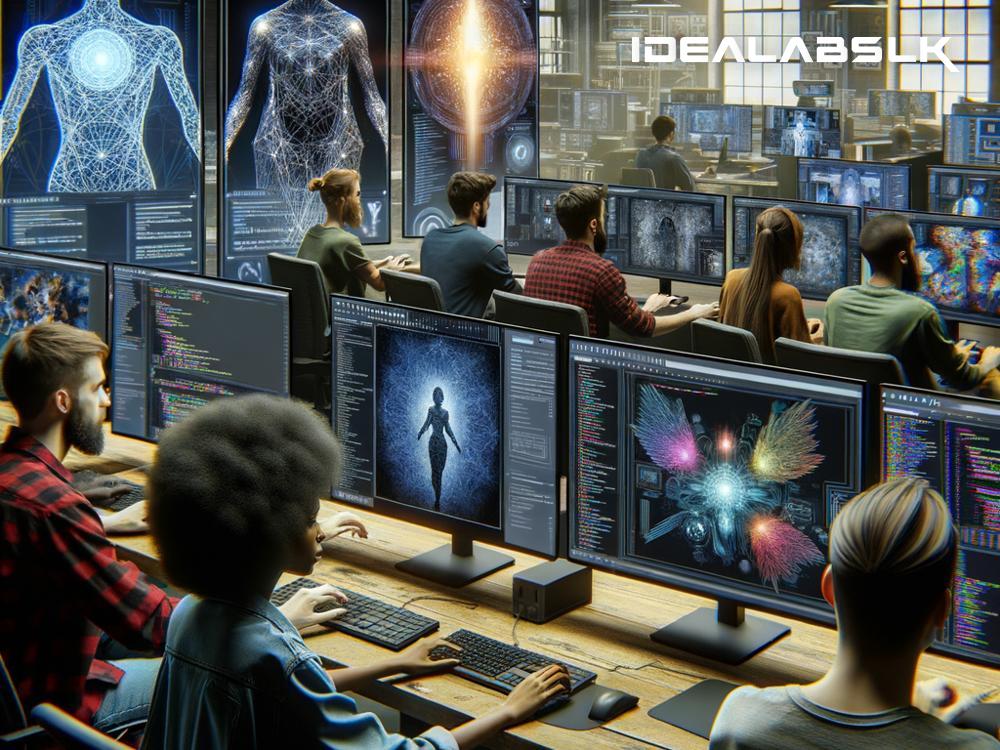Title: How AI Will Change Game Development by 2025: The Future of Gaming
In the past few years, we've witnessed artificial intelligence (AI) shaking up various industries, including gaming. As we steer into 2025, the influence of AI on game development is projected to be more profound than ever, transforming how games are conceived, developed, and played. This impact is twofold, involving both the simplification of complex processes and the amplification of creative endeavors. Let's explore how AI is set to change the game (pun intended!) by enhancing efficiency and creativity in game development.
Streamlining Development Processes
Game development is no small feat. It involves countless hours of coding, designing, testing, and refining. However, with AI's integration, many of these time-consuming tasks are becoming streamlined, allowing developers to focus on bringing their visions to life more efficiently.
Automated Testing and Debugging
One of the most time-intensive aspects of game development is testing and debugging. AI is poised to take over this tedious task by automatically identifying and fixing bugs, significantly reducing development time and ensuring smoother gameplay. By 2025, we envision this process becoming so refined that games will hit the market faster, with minimal glitches.
AI-driven Game Design
AI algorithms are increasingly capable of generating game assets, such as textures, models, and even level designs. This means that by 2025, developers can leverage AI to create intricate and visually stunning environments, characters, and objects, cutting down on manual work and fostering more diverse and creative outputs.
Enhanced Player Experience Through Machine Learning
AI doesn't just simplify the development process; it also enhances the player's experience. Machine learning algorithms can analyze player behavior to adjust game difficulty in real-time, ensuring a challenging yet accessible experience for all skill levels. Imagine a game that learns from how you play and adapts to continually offer a captivating experience. That's the future we're looking towards.
Amplifying Creativity
Perhaps the most exciting aspect of AI's role in future game development is its potential to unlock new realms of creativity.
AI as a Creative Partner
By 2025, AI could act as a creative partner to game developers, offering suggestions for storylines, character development, and even music composition. This symbiotic relationship means that developers can explore avenues they may not have considered, leading to innovative gaming experiences that push the boundaries of storytelling, art, and sound.
Procedural Content Generation
Procedural content generation (PCG) is a technique where AI generates game content automatically based on a set of rules. This can include anything from vast landscapes to intricate puzzle configurations. By 2025, we expect PCG to be more advanced, allowing for the creation of vast, ever-changing game worlds that keep players engaged for longer periods.
Dynamic Storytelling
The narrative is a vital component of many games, and AI is set to revolutionize this aspect by enabling dynamic storytelling. This means that game stories can evolve based on the player's decisions, creating a highly personalized and immersive experience. By 2025, the combination of AI with natural language processing could result in games where characters respond realistically to players, offering an unprecedented level of interaction.
Conclusion
Looking ahead to 2025, it's clear that AI will be a game-changer in the true sense for game development. By streamlining tedious processes and amplifying creativity, AI not only makes the development process more efficient but also opens up new possibilities for what games can be. Whether it's through creating endless, dynamic worlds, developing complex narratives, or revolutionizing player-game interaction, AI is set to elevate the gaming industry to new heights. The future of game development is bright, with AI leading the way toward more engaging, personalized, and immersive gaming experiences that we've only begun to imagine.

